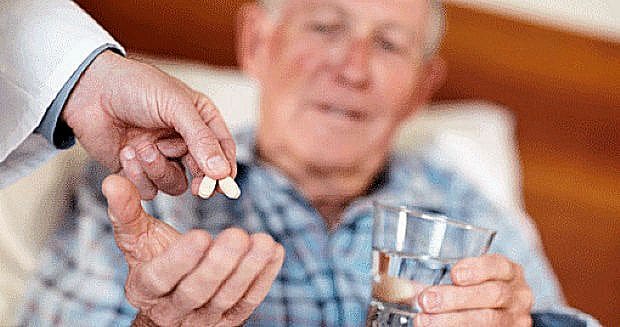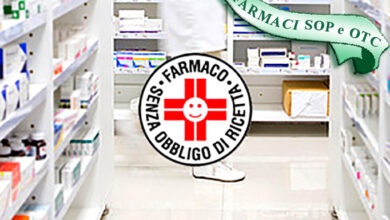
"This is how grandchildren teach grandparents to adhere to therapies"
In the Senate presentation of the national project "I join, what do you do", promoted by CIAT
Chronic diseases: 10 drugs a day for 1 million 500 thousand elderly people
"this is how grandchildren teach grandparents to adhere to therapies"
The 70% of the over 65s does not follow the treatments correctly. A competition is underway in high schools to raise awarenesstore the students. Hospitalizations for non-adherence cost €125 billion every year in Europe
Rome, 30 January 2019 – The 50% of the elderly in our country, equal to almost seven million over 65s (6 million and 800 thousand people), are affected by at least one chronic disease. Heart disease, diabetes, asthma, depression, osteoporosis, arthrosis, rheumatoid arthritis and glaucoma are some of the pathologies with which millions of citizens have to live with for a long time and, in the majority of cases, there are therapies that guarantee a good quality of life. But too many do not adhere to treatments or abandon them after a short period: it is estimated that only half of patients take their drugs correctly (World Health Organization). The "non-adherents" exceed the 70% among the elderly, who are often affected by various diseases and face greater difficulties in following the doctor's instructions. Just think that the 11% of the elderly (about 1 million and 500 thousand  people in Italy) must take 10 or more medicines every day. To make all citizens, especially the over 65s, aware of the importance of therapeutic adherence, the first national project (I join, what do you do?) involving grandchildren: they will teach grandparents how to comply with the prescriptions of clinicians. The initiative, presented today in the Senate, is promoted by the Italian Committee for Adherence to Therapy (CIAT), which brings together scientific societies, doctors (FNOMCeO, National Federation of Orders of Surgeons and Dentists), pharmacists (Federfarma), nurses (FNOPI, National Federation of Nursing Professions), Institutions and patient associations. The www.ciatnews.it portal is already online, meetings are planned in schools, information brochures will be distributed and flash mobs will be held in five squares (Rome, Milan, Venice, Bologna, Naples) to create awareness, with a strong impact on social network to highlight the viral message “I join, what are you doing?”.
people in Italy) must take 10 or more medicines every day. To make all citizens, especially the over 65s, aware of the importance of therapeutic adherence, the first national project (I join, what do you do?) involving grandchildren: they will teach grandparents how to comply with the prescriptions of clinicians. The initiative, presented today in the Senate, is promoted by the Italian Committee for Adherence to Therapy (CIAT), which brings together scientific societies, doctors (FNOMCeO, National Federation of Orders of Surgeons and Dentists), pharmacists (Federfarma), nurses (FNOPI, National Federation of Nursing Professions), Institutions and patient associations. The www.ciatnews.it portal is already online, meetings are planned in schools, information brochures will be distributed and flash mobs will be held in five squares (Rome, Milan, Venice, Bologna, Naples) to create awareness, with a strong impact on social network to highlight the viral message “I join, what are you doing?”.
The problem of adherence does not only concern drugs, but also advice for adopting a healthy lifestyle: do not smoke, follow a correct diet and carry out constant physical activity. Any medical act aimed at substantially changing the habits of patients often meets with long-term resistance. In particular, in Italy, only 57.7% of patients adhere to antihypertensive treatments, 63.4% to hypoglycaemic therapies for the treatment of diabetes, 40.3% to antidepressant treatments, 13.4% to treatments with drugs for obstructive respiratory tract syndromes and 52,1% in the treatment of osteoporosis. Percentages that have not undergone significant changes over the years, with significant clinical and social costs. In the United States, non-adherence causes waste for about 100 billion dollars each year, in Europe there are an estimated 194,500 deaths and 125 billion euros a year in hospitalization costs due to this problem.
“The cumulative economic loss from chronic disease will total more than $47 trillion over the next two decades,” he explains. Rainier War, Assistant Director General for Special Initiatives of the World Health Organization –. This figure represents 75% of gross global product in 2010. Also contributing to this are mental illnesses, which alone are worth 16.1 trillion, and 63% of all deaths globally are related to chronic diseases, especially of a cardiovascular nature, oncology, respiratory and diabetes. While prevention remains a cornerstone with every dollar invested in primary preventative action providing a return of the $7 saved in preventable disease, it is also true that clinical therapy slows the progress of chronic disease and saves lives by prolonging life expectancy. and significantly improving its quality. Poor adherence to doctor's prescriptions is the main cause of non-effectiveness of pharmacological therapies and is associated with an increase in healthcare interventions, morbidity and mortality, representing damage to patients, the healthcare system and society . In fact, greater adherence means a lower risk of hospitalization, fewer complications associated with the disease, greater safety and efficacy of treatments and a reduction in costs for therapies, as well as, as mentioned, an extension of good quality life expectancy”.
 "The management of chronicity in Italy absorbs 70% of public health and social expenditure - explains Dr. Philip Rings, President of the National Federation of Orders of Surgeons and Dentists (FNOMCeO) -. When, following our visit, we think we need to prescribe a drug to the elderly patient, we will take care to explain the dosage clearly, preferably by drawing up a schedule and timing of intake, and choose the most suitable formulations to ensure the best therapeutic adherence. In this regard, it should be noted that, despite the openings of the Ministry and AIFA, the prescription of some drugs (oral antidiabetics, anticoagulants, drugs against chronic obstructive pulmonary disease), which lead to an improvement in compliance and therapeutic adherence, it is still closed to general practitioners, with serious inconvenience for patients".
"The management of chronicity in Italy absorbs 70% of public health and social expenditure - explains Dr. Philip Rings, President of the National Federation of Orders of Surgeons and Dentists (FNOMCeO) -. When, following our visit, we think we need to prescribe a drug to the elderly patient, we will take care to explain the dosage clearly, preferably by drawing up a schedule and timing of intake, and choose the most suitable formulations to ensure the best therapeutic adherence. In this regard, it should be noted that, despite the openings of the Ministry and AIFA, the prescription of some drugs (oral antidiabetics, anticoagulants, drugs against chronic obstructive pulmonary disease), which lead to an improvement in compliance and therapeutic adherence, it is still closed to general practitioners, with serious inconvenience for patients".
“The project involves all clinicians who deal with the problem every day, including cardiologists, oncologists, family doctors, rheumatologists, paediatricians, ophthalmologists, dermatologists, pulmonologists, urologists and psychiatrists – he says Mauro Boldrini, Vice President of CIAT -. To raise awareness among the grandchildren, a competition will be activated in the coming weeks in high schools for two-year students, in collaboration with the Ministry of Education, University and Research. Schools, thanks to the children who create a theme on therapeutic adherence, will have the opportunity to win school supplies (tablets and computers). The best topics will be selected by the school and evaluated, at a later time, by a jury that will include presidents of scientific societies and representatives of the institutions".
“The involvement of the grandchildren makes it possible to reach all age groups – underlines dr. Paul Biasci, President FIMP (Italian Federation of Pediatricians) -. The younger ones will also become adults more aware of the role of the correct intake of treatments. The main factors underlying non-adherence are the complexity of managing the therapy, unawareness of the disease and the importance of following the doctor's prescriptions in the long term and clinical conditions that make the patient less alert. To these elements are sometimes added incorrect or irrational personal beliefs about drugs, including the fear of potential adverse reactions or, on the contrary, an incorrect use of therapies without the advice of a pediatrician. Precisely on this the FIMP has recently launched a campaign to raise awareness of families ".
“Innovative therapies make it possible to make even serious diseases such as tumors chronic – says prof. Paolo Marchetti, Director of Medical Oncology B of the Policlinico Umberto I in Rome and Full Professor of Oncology at La Sapienza University -. Every day, in Italy, more than 510 new cases of cancer concern the over 70s. But only 48.4% of women and 48.1% of men in this age group are alive five years after diagnosis,  with notable differences compared to the general population (63% women and 54% men). Ensuring access to innovative medicines for all patients, including the elderly, is a necessary but not sufficient condition if adherence is not improved. The clinical paradigm according to which the more drugs are prescribed, the greater the probability of non-compliance with the therapies is known. A particularly frequent phenomenon in the over 65s, often with reduced visual abilities and cognitive functions".
with notable differences compared to the general population (63% women and 54% men). Ensuring access to innovative medicines for all patients, including the elderly, is a necessary but not sufficient condition if adherence is not improved. The clinical paradigm according to which the more drugs are prescribed, the greater the probability of non-compliance with the therapies is known. A particularly frequent phenomenon in the over 65s, often with reduced visual abilities and cognitive functions".
“The 32% of the elderly uses anti-inflammatory and anti-rheumatic drugs for the treatment, among other ailments, of arthritis and arthrosis – continues prof. Guido Valesini, Vice President of SIR (Italian Society of Rheumatology) -. The 40% of the 350,000 patients affected by rheumatoid arthritis does not follow the therapies correctly. The excessive workload to which doctors are often subjected in clinical practice can lead to too fast and sometimes superficial explanations of the reasons underlying a drug prescription. Hence the need for a real cultural revolution that this project wants to promote and which concerns all the actors involved, starting with better doctor-patient communication".
"In Italy, in 40 years (1975-2015), life expectancy has lengthened considerably in both sexes: today an over 65 still has more than twenty years ahead of them - he concludes Roberto Messina. Senior President Italy FederAnziani -. In particular, life expectancy at birth (2017) is 80.6 years for men and 84.9 years for women. These results have been influenced, over time, by progress in medical research, innovative therapies, early diagnoses and prevention campaigns. The elderly population is the most at risk in terms of adherence to therapies, especially in the presence of numerous pathologies. Italy is in second place in Europe for the old age index, with obvious consequences on health care due to the high number of chronically ill patients. Adherence to therapies is therefore essential for the sustainability of the National Health Service”.
The bill was also filed which provides for the establishment, on 12 April, of the "National Day of adherence to therapies", the first ever, which intends to promote all-round culture on these issues.
CIAT press office
Intermediate
intermedia@intermedianews.it





